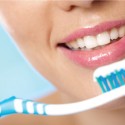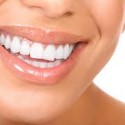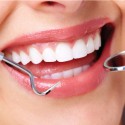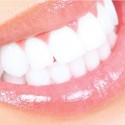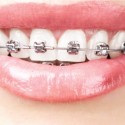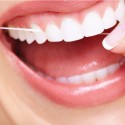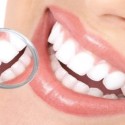Why Proper Dental Floss is Important

13 Dec, 2021 1:31 PM
Flossing is an important oral hygiene habit. It cleans and dislodges food stuck between your teeth, which reduce the amount of bacteria and plaque in your mouth. Plaque is a sticky film that builds up on teeth and contributes to cavities and gum disease.
Although many people brush their teeth daily, not everyone flosses their teeth as regularly as they brush. Proper flossing removes plaques and food particles in places where a toothbrush cannot easily reach – under the gum line and between your teeth.
Plaque can lead to tooth decay and gum disease, so flossing is highly recommended.
Starting with about 18 inches of floss, wind most of the floss around each middle finger, leaving an inch or two of floss to work with.
Why should I floss?
Your toothbrush can’t reach between your teeth to remove plaque (a sticky film that contains bacteria). Flossing gets between your teeth to clean away the plaque.
By flossing and brushing your teeth, you’re removing plaque and the bacteria in it that feeds on sugar and particles of food that remain in your mouth after eating. Holding the floss tightly between your thumbs and index fingers, slide it gently up – and down between your teeth.
Gently curve the floss around the base of each tooth, making sure you go beneath the gum line. Never snap or force the floss as this may cut or bruise delicate gum tissue.
Use clean sections of floss as you move from tooth to tooth.
To remove the floss, use the same back – and forth motion to bring the floss up and away from the teeth.
Flossing is an important oral hygiene habit. It cleans and dislodges food stuck between your teeth, which reduce the amount of bacteria and plaque in your mouth. Plaque is a sticky film that builds up on teeth and contributes to cavities and gum disease.
All Smiles Dental Practice encourages Kenyans to embrace and practice safe dental floss on a regular basis. Although many people brush their teeth daily, not everyone flosses their teeth as regularly as they brush. Proper flossing removes plaques and food particles in places where a toothbrush cannot easily reach – under the gum line and between your teeth.
Plaque can lead to tooth decay and gum disease, so flossing is highly recommended.
Starting with about 18 inches of floss, wind most of the floss around each middle finger, leaving an inch or two of floss to work with.
Holding the floss tightly between your thumbs and index fingers, slide it gently up – and down between your teeth.
Gently curve the floss around the base of each tooth, making sure you go beneath the gum line. Never snap or force the floss as this may cut or bruise delicate gum tissue.
Use clean sections of floss as you move from tooth to tooth.
To remove the floss, use the same back – and forth motion to bring the floss up and away from the teeth.
For more information on dental health practices and treatments in Nairobi, Kenya – get in touch with our clinic.
Our Contacts:
All Smiles Dental Practice
Safaricom: 0722 513561,
Airtel: 0733 513561
Ralph Bunche Rd, Upper Hill Medical Centre, Suite 3A, 3rd Flr, Nairobi
Email: [email protected]
Dental Floss Oral hygiene Plaque Removal Cavities treatment gum disease treatment healthy teeth management under the gum cleaning tooth decay treatment flossing vs brushing dental hygiene habits Kenya Nairobi


